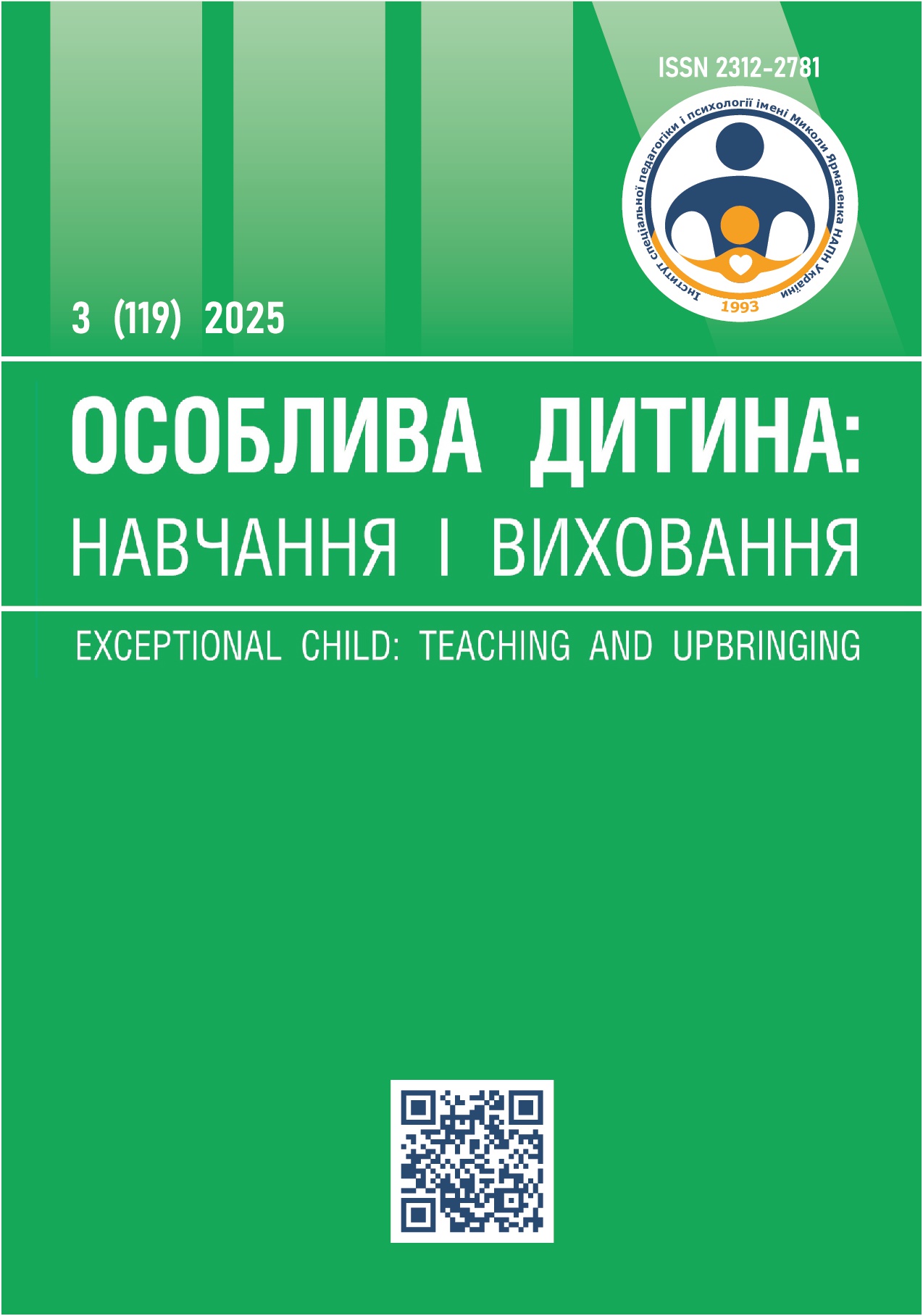FEATURES OF PROVIDING EARLY INTERVENTION SERVICES TO FAMILIES RAISING CHILDREN WITH RETT SYNDROME
Abstract
The article discusses the specifics of providing early intervention (EI) services to families raising children with Rett syndrome. It substantiates the importance of a family-centered approach as a fundamental principle that permeates all stages of work, from initial assessment to the formation of an individual plan.
It describes the stages and components of the child and family development assessment process and proposes effective communication strategies for reporting results and providing support. Particular attention is paid to the specific adaptation of EI services to the needs of families with children with Rett syndrome, taking into account the psycho-emotional state of the family, the need for knowledge, and the long-term nature of support.
It is determined that the success of psychological and pedagogical support for children with special educational needs, in particular those with Rett syndrome, directly depends on the coordinated work of the team and the active involvement of parents. This partnership provides a holistic approach, where each participant makes their own unique contribution to the child's development. The author analyzes various challenges, including communication and behavioral problems, physiological difficulties with eating, daily orientation, movement, sleep, nutrition, breathing, etc. Early intervention allows for a comprehensive approach to these problems, involving an interdisciplinary team of specialists (physical therapists, speech therapists, psychologists) to provide comprehensive support.
Support for families raising children with Rett syndrome is important in overcoming psychological and emotional stress within the family. Early intervention provides parents not only with practical care and communication skills, but also with emotional and informational support. It helps the family feel like partners in the process, reduces stress levels, and gives hope for a better future.
The main areas of research include studying the long-term impact of various factors on the development and support of children with Rett syndrome. This covers not only therapeutic interventions, but also the impact of quality of care, health status, and social integration. Research aimed at assessing the quality of life of the family and the child will enable the development of more effective support strategies at all stages of life.
It is critically important to develop and validate specialized diagnostic tools that take into account the specific motor, sensory, and cognitive limitations of Rett syndrome. This will ensure greater accuracy in assessing the individual needs and potential of the child, which in turn is fundamental to the development of effective intervention programs.
References
Особлива дитина: навчання і виховання. №3(119). 2025. с. 237-254


